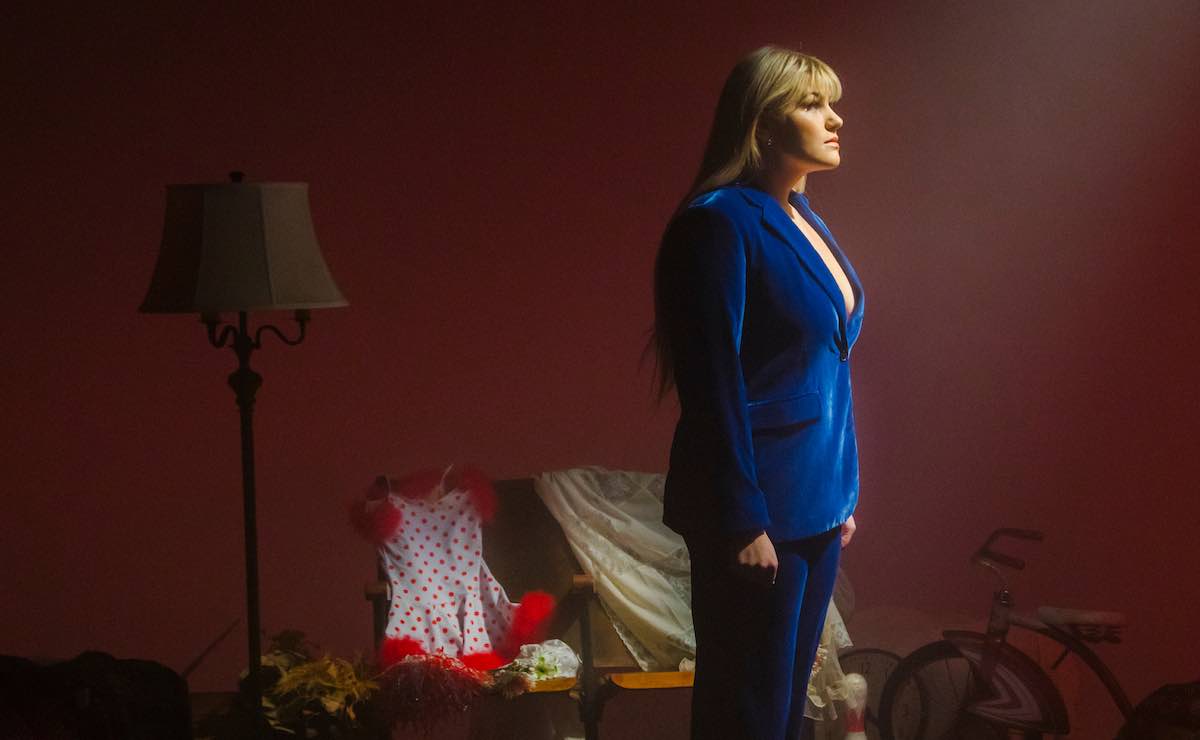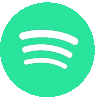
After the announcement of her debut album, Now That I've Been Honest, and the release of her newest single “Eightball Girl," singer-songwriter Maddie Zahm sat down to chat with Variance's Ethan Ijumba to discuss finding herself as an artist, her connection with her fanbase and following, as well as her connection with how she composes her music not only for herself but also toward her audience. Be sure to read the full Q+A below as well as stream her newest single, “Eightball Girl,” on all platforms.
EI: So you've got your new album titled, Now That I've Been Honest, set to drop on Oct. 20, and it's your first debut major release. How does it feel to finally come to this point? Because we've heard your previous EP and album from a couple of years ago. But how's it feel to drop this upcoming one now, since this is the first major release we're getting from you?
MZ: Overwhelming, but in a good way; I was going through so much personally during my first EP, You Might Not Like Her. It is such an interesting feeling to have a body of work with some hard topics about my life and all those things, but it's also incredibly fun. I'm really excited. I feel like this has been a really enjoyable experience to even think about getting to share all these songs with people.
EI: How do you feel about this as your first project and at this point in your career when it comes to your journey as an artist? Because you first put out Beautifully Human back in 2018 and now in 2023 and you've seen a lot of change, growth, and a lot of development. How does it feel looking back and also looking forward when it comes to evolving as an artist?
MZ: Just feel really grateful, also slightly overwhelmed because when I released Beautifully Human, I genuinely didn’t think that I was gonna be an artist. Honestly, my mom helped me upload that song, and we laugh about it because she made the title cover with the wrong date as, “2008” with a ginormous white line on the side of it because we messed up the crop, so it happens. You win some and lose some, and we took an L that day. So I think the amount of shit that's happened in five years has been really overwhelming, but I also think that it couldn’t have happened any differently. It was almost like it was supposed to happen because I had to wrap my brain around the fact that I was going to be an artist, and I am an artist.
EI: So when it comes to never imagining yourself as an artist, a lot of your music has a lot of these personal and vulnerable topics, and you sing them with all your bare emotion, and it's all 100% true to who you are. Was there ever a moment or revelation where you felt like, “I'm ok with giving my complete honesty and being brutally myself on my records?” Or where you felt like, “I know I'm gonna get judged, but I'm gonna sing it regardless.”
MZ: Damn, that's a good question. When I was writing my EP, You Might Not Like Her, I wasn't out to anybody. And I wrote “If It's Not God” right when I moved to Los Angeles, and I was still known in Boise for being a worship leader. I remember writing all those songs and looking at all of the songwriters in those rooms and saying, “This is never coming out because I'm not.” So I don't know what we're going to do because they are great songs, and I sent them to my publisher, and once they heard them, they were like, “Maddie, what the fuck? This is a project; you have to release this.” I knew what that came with and I asked, are you sure we can't give these songs to somebody else? And I think she made the joke: Who are we going to send this to? " Can you imagine Shawn Mendes singing “If It's Not God "? It's so personal to you, and nobody could sing these. So I think that when I realized the importance of the songs and probably how much they could help people heal and seeing the response from “Fat Funny Friend” especially helped me, that was when I really realized it would have been selfish not to do the internal works so that I could release them; so I did it.
EI: Did it feel easier to release music after that? Once you saw the reception, did everything feel like, OK, I can actually be myself more and be more honest, or did it make you feel that because you're always gonna have negative and positive comments? Is it still hard to get yourself out there and be as open as you are?
MZ: I will say this album scares me a little more than the EP, which is crazy because the EP was such difficult topics, but it also, in some ways, was mostly about my experiences internally, if that makes sense. So when I would receive feedback on songs, it was easier for me to talk about my shit, and now it's interesting because I've gone through all of these new experiences, like going through heartbreaks and finally dating for the first time. It's really interesting that I now have an album that includes my experiences with others. So finding the line between making sure that I am protective of the people who went through those experiences with me and being able to talk about it myself, but I also trust myself in that. Luckily I've had only good experiences with the people I've written about, and it's all ended well. So, they all know about the song, so we're all good.
EI: That said, I'm curious about how you want the production to sound when singing about it. Many of your stuff ranges from country to pop, with R&B elements in there, and rock as well. When you come up with what the song is going to sound like. Do you normally find the pen to the paper first and write it out or start then find the instrumentation afterward or do you have to hear the beat or instrumental first and then approach it as is?
MZ: Yeah, I’m usually very lyric-driven, so most of the songs come from me showing up to the studio with something unhinged written down. And here's the thing, there are very few things that I would do before I would ever give my notes app up for the sake of the shit that is written in there. It is an unhinged land, and every time I lose my phone, I'm like, dear god, good luck to whoever has access to that because I am…yeah. So I always come with some sort of just little snippet of something, and then, it usually turns into a song. The only song that started with the beat on the album is “Lady Killer.” Which I find so funny because once the producer started playing it, I was just obsessed with that, and we ended up writing three different songs and then morphing them into this one clusterfuck of a song. Once we saw how it ended up, we knew it was on the album immediately. So I think whatever comes after this album, I think I'm gonna try and lean more into melodies. But this one is because it is my life story, and it's like what happened after the EP felt so important to provide context, especially since the album is in order.
EI: So now that you've got all this different production and I know that your recent single was “Where Do All The Good Kids Go,” a lot of that was just based on your upbringing. Where did that exactly stem from? Because I feel like you gotta really put forth the first single; most times, it's perspective of I really like this song, but is it also gonna do well commercially?
MZ: So what's funny is that I don't even think it's commercial; I think I made the choice for it to be a single, not because I thought that it was gonna do well or because I thought that it was gonna branch out to a newer audience. I wanted it to be the first single because I wanted to honor the people here now, regardless of what this album does or how many new people it brings on as fans. I have this niche community of incredible human beings that we all connect on such deep topics that it's not a normal connection where we get each other. If you're listening to my music right now, there are some fun songs, but typically if someone is really into my music, we have something in common, and that means one of the topics that I've talked about, whether it's about bodies, church, or coming out. When I meet somebody, I wonder what part of my EP they really connected with, and I think it was really important for me to choose something that would honor and also bridge the gap for those people that have been here for this new album and just talking about those subjects we're inviting new people in. We're inviting people who have been through heartbreak or have struggled with mental health. It’s almost like we're opening the world up.
EI: It's interesting because if you look at your early stuff, it's good music, but I feel like your sound now has created more of a communal fan base, and you're not just making songs because it's a good song; you're making songs for people to actually relate to and have a connection with. It's interesting because a lot of your music now is just you being yourself, and it's not like we're not getting a stereotypical industry plant formatted version of any specific version of you. We're just getting the genuine Maddie Zahm, who will make songs for those to connect with and relate with, and it's very genuine. For this album, you're saying you're overwhelmed but also excited and scared. Do you have any specific goal you want to have? Some people have the statistical aspect where they want to reach this many plays or views or have fun performing it.
MZ: That's a good question because I want to catch up with the people I haven't released music for in a year, and this next tour will be banging. I love singing my EP songs with the people that know; it’s my favorite thing. So the idea of singing “Lady Killer” with people, we're gonna have so much fun. So that's the kind of stuff I'm the most excited about. It's not that I don't care about the number of listens, how something is gonna do, or any of that stuff because, obviously, that’s part of the job. But for me, getting this shit out is more therapeutic and about the feelings and connections.
EI: So you mentioned how your fan base is finding a relation and a connection with you between the artist and the audience. What artist was it for you whom you actually felt that you had a connection with?
MZ: You know what's funny? Recently, with what Noah Kahn has been doing, I don't think I've ever experienced that until I started listening to his music. I went to his concert, and that was the first time I genuinely understood how my listeners felt about me. When we would be at concerts, I didn't feel undeserving of their time and the way they loved me and felt like they communicated with me and cared about my music and my well-being. I've never really experienced that with an artist. But it was just this cathartic feeling at the Noah Kahn concert. I felt like I knew him, which made me understand my listeners more by finding myself in that position.
EI: No, I agree. He’s a great guy, and he's also in that realm of his following, growing into much more of a genuine audience that is communal. He’s not a buy my merch kind of guy; he’ll say it jokingly like: Hey guys, I'm trying to pay rent, so please buy my merch.
MZ: Yeah, he said something in his concert that made me laugh so hard because the way he said it was like, “It should be a crime for anybody to be happier than me at any given moment,” and then he just started the song, and I literally was like, that is it! Because how do you even react to that? Or this song is about Zoloft, and I'm like, fair enough.
EI: Yeah, he's a character. So aside from that, is there any that you truly want to accomplish career-wise?
MZ: Yeah, I wanna have a scandal. No, I'm just kidding. I'm totally kidding. Honestly, I want to tour all the time, and however, that looks like that's like, I want to connect with the people listening to my music and people to thank them. But also, songwriting-wise, I would love to write a song for someone like Lady Gaga.
EI: So for your newest single, “Eightball Girl,” how exactly did that come about behind what influenced it?
MZ: “Eightball Girl” was the first love song that I wrote about a girl who was making out with my best friend and was wondering if it was fruity. The answer is yes, it was. I wrote that song to her to ask her how she felt about me. When I first turned it in, everybody thought it was about drugs, and I was like, no, I'm a church girl…at least I was. So I thought it was like a little magic eight-ball. Yes or no kinda thing. I thought it was. So when they were like, is this about cocaine? And I was like, no, it isn't, but it is gay. But it's one of my favorite hooks I've ever written.
EI: Does it feel easier to write a love song about a girl than to write about a boy?
MZ: I think my songs are better when their about girls. I identify as Bi, but there was a comfortability in writing about women that I can't explain, and it felt more honest. It's also because relationships with women are so emotionally driven, at least for me, it was. And so there was more to pull from that would make sense. I also hadn't dated like I wasn't dating at all, and then it hit me like a ton of bricks, and then the album just wrote itself.
EI: That makes sense. I was going to say I wouldn't call it a beautiful mess, but it’s…
MZ: No, it's a beautiful mess. It all worked out. It's a disaster, but it made me a great song. So that's all that matters.
EI: Thank you again for your time.
MZ: You're the best, Ethan; thanks for the talk.
EI: Likewise.












